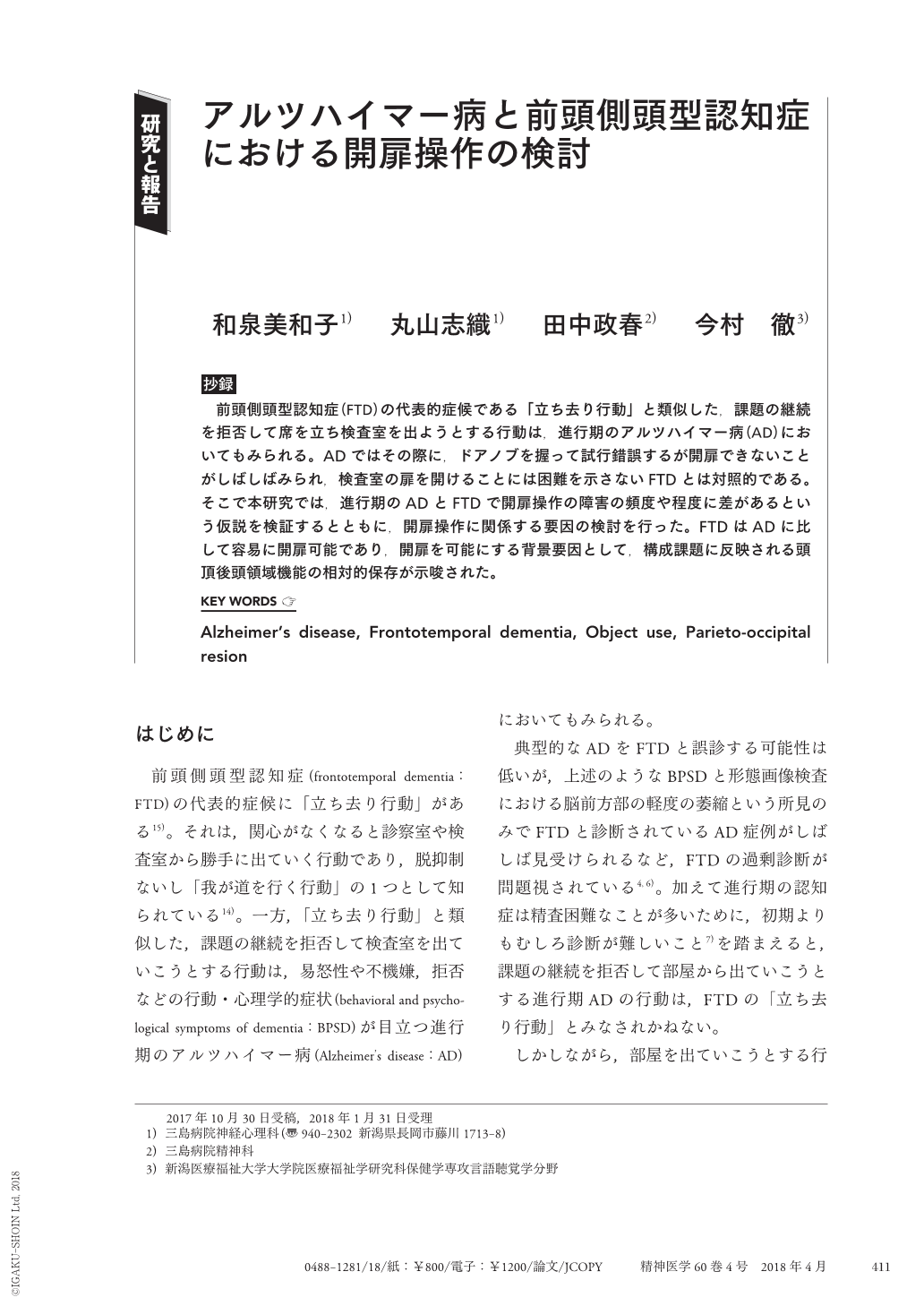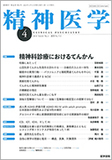Japanese
English
- 有料閲覧
- Abstract 文献概要
- 1ページ目 Look Inside
- 参考文献 Reference
抄録 前頭側頭型認知症(FTD)の代表的症候である「立ち去り行動」と類似した,課題の継続を拒否して席を立ち検査室を出ようとする行動は,進行期のアルツハイマー病(AD)においてもみられる。ADではその際に,ドアノブを握って試行錯誤するが開扉できないことがしばしばみられ,検査室の扉を開けることには困難を示さないFTDとは対照的である。そこで本研究では,進行期のADとFTDで開扉操作の障害の頻度や程度に差があるという仮説を検証するとともに,開扉操作に関係する要因の検討を行った。FTDはADに比して容易に開扉可能であり,開扉を可能にする背景要因として,構成課題に反映される頭頂後頭領域機能の相対的保存が示唆された。
The refusal to continue a given task and leave the behavior-testing laboratory, known as running-away behavior, is a typical symptom of frontotemporal dementia(FTD). Similar behavior is also observed in advanced Alzheimer's disease(AD). However, when trying to leave, AD patients hold the door knob of the laboratory, attempt opening the door, but often fail to open it. This is in contrast to observations with FTD patients, who do not show difficulty in opening the door. These facts lead to a hypothesis that there is a difference in the frequency and severity of the disability to open a door, between patients with advanced AD and FTD. In this study, we examined the hypothesis and explored the factors related to disturbance in door opening. FTD patients can easily open a door compared with AD patients. This may be relative to the relatively preserved function of the parieto-occipital region in the FTD patients, which is suggested by the better scores for constructional tasks in FTD patients than in AD patients.

Copyright © 2018, Igaku-Shoin Ltd. All rights reserved.


